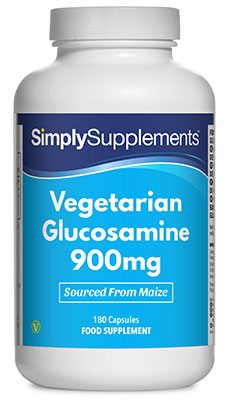Health Benefits of Playing Golf

With spring well underway, people are beginning to venture back outside to play their favourite sports. This time of year also coincides with the start of a new competitive golf season and the Masters Tournament, where the world's best compete in America in the first of four major events in the sport's annual calendar. This means that beginners, amateurs and experts will be picking up their clubs to go out onto the course too.
The sport of golf, however, is often portrayed as one that doesn't offer sufficient activity or physical strain to be considered effective exercise. With that in mind, let's take a look at the multitude of health benefits regularly playing golf may be able to provide.
What Are the Health Benefits of Playing Golf?
Contributes to Muscle Growth
Swinging a golf club involves a lot more than just your arms. There are a lot of different muscle groups that are used during the swing itself, including your chest, back, forearms, core and bottom muscles. If you watch professional golfers during something like The Masters, you'll see that to get the range from their driving shots they'll use most of their body in a twisting motion to help add the necessary momentum required to make a golf ball fly upwards of 300 yards down a fairway. Learning the correct motions and movements can mean that regularly playing golf can help to build strong, healthy muscles.
Another important aspect of golf that can help contribute to healthy muscle growth is the walking that comes with making your way around a 9 or 18-hole course. Walking instead of using a cart or buggy to get around can be a very beneficial way of helping to develop the muscles in your legs. Pulling or carrying your own clubs also incorporates upper body muscle groups, turning a full round of golf into a comprehensive workout routine that most people can enjoy with a relatively low risk of injury. Just be sure to know your limits and not overwork yourself to prevent accidental serious damage or strain from occurring.
Supports Heart Health
Golf, just like football, tennis or dancing, is a physical activity. Hitting the ball, carrying a bag full of clubs and walking around the course add up to create a surprisingly strenuous exercise that gets your blood pumping. By forcing your body to work harder in this way, you can help to support the overall health of your heart and circulatory systems, which in turn may help to provide benefits to:
-
Blood pressure maintenance
-
Blood sugar level regulation, and
-
Healthy cholesterol levels
 To test the benefits of golf to the heart, a study looked to evaluate the metabolic demand of golf in people with heart disease. 20 male golfers aged 49 to 78 served as the sample, each of whom underwent a graded exercise test (GXT). Every participant that suffered with heart disease was matched and paired with another, healthier golfer that generated similar results during the GXT. During the experiment, each pair completed a 9-hole round of golf, pulling a cart of golf clubs throughout the course. During travel time around the course oxygen consumption was monitored using portable equipment.
To test the benefits of golf to the heart, a study looked to evaluate the metabolic demand of golf in people with heart disease. 20 male golfers aged 49 to 78 served as the sample, each of whom underwent a graded exercise test (GXT). Every participant that suffered with heart disease was matched and paired with another, healthier golfer that generated similar results during the GXT. During the experiment, each pair completed a 9-hole round of golf, pulling a cart of golf clubs throughout the course. During travel time around the course oxygen consumption was monitored using portable equipment.
The results of the study presented that “on average, patients with heart disease worked at a significantly higher percentage of their functional capacity compared to the healthy adults.” The study authors ultimately concluded that “walking the golf course while pulling a cart appears to provide an adequate training stimulus for most patients with heart disease.” Despite the small-scale size of the study, this information is a promising sign for verifying the heart-health benefits of golf.
Another experiment published in 2000 studied the health benefits of regularly walking on a golf course. The participants included one group of healthy male golfers who lived an inactive lifestyle before the test began, and another group of age-matched individuals that would serve as the control.
Throughout a period of 20 weeks, those in the first group were encouraged by the authors of the experiment to play golf 2-3 times a week, whereas the control weren't. Measurements including body composition, respiratory function, muscle fitness, blood pressure, and fat, glucose and insulin levels were all collected before and after the study period.
In regards to the health of the heart, the results of this study found that “golfers had significantly greater increases in serum high-density lipoprotein (HDL) cholesterol levels and in the ratio of HDL cholesterol to total cholesterol.” There are two different types of cholesterol found in your body, HDL, or ‘good' cholesterol and LDL, ‘bad' cholesterol. The balance between the two is perfectly regulated by your body, but can be offset by the contents of your diet.
Since the results of this study show that golfers have higher levels of HDL (good) cholesterol, this may insinuate that golf is an effective means of helping to keep your cholesterol levels in check, which is a good way of benefitting the overall health of your heart.
Provides Stress Relief and Helps Boost Your Mood
 One aspect of golf most people can appreciate even if they don't enjoy the sport is the course itself. Beautiful, well-maintained fairways, lush woodland surroundings and pristine lakes and ponds make the environment a fantastic place to enjoy some physical exercise. Aside from the physical benefits though, being out and about in something as beautiful as a professional golf course with plenty of fresh air is believed to be able to help improve your mental wellbeing, as well as benefit those suffering with stress or anxiety.
One aspect of golf most people can appreciate even if they don't enjoy the sport is the course itself. Beautiful, well-maintained fairways, lush woodland surroundings and pristine lakes and ponds make the environment a fantastic place to enjoy some physical exercise. Aside from the physical benefits though, being out and about in something as beautiful as a professional golf course with plenty of fresh air is believed to be able to help improve your mental wellbeing, as well as benefit those suffering with stress or anxiety.
Many have postulated the idea of a connection between natural environments, and happiness and healthy mental wellbeing.
An article published in 2001 titled ‘Beyond Toxicity: Human Health and the Natural Environment' discussed why we react so positively to beautiful landscapes. The article quotes author E.O Wilson, who, when discussing real estate, wrote “whenever people are given a free choice, they move to open tree-studded land on prominences overlooking water.” The article goes on to comment that this option is “a pattern that repeats in parks, cemeteries, golf courses and lawns.”
However, theory aside, scientists have actively tested to determine a definitive link between feelings of happiness and a connection to nature. A study published in 2012 created a measure of general connectedness to nature and applied it to a sample of 331 students and 415 other members of the community, alongside other happiness indicators. The results found that “nature relatedness remained a significant distinct predictor of many happiness indicators, even after controlling for other connections.”
With this result in mind, it would be understandable for people to apply the benefits nature can offer your mental health and mood to the environment of a golf course and playing the sport in those kinds of settings.
Healthy Weight Management
Earlier in the article we discussed the health benefits that exercise like golf can have for the heart. In relation to this, golf may also be a form of exercise that contributes to healthy weight loss. The popularity of the daily 10,000 steps goal has swept across the UK in recent years, and playing a round of golf can help contribute to that overall aim.
The NHS recommends that all adults aged 19 to 64 should aim to achieve 150 minutes of moderate aerobic exercise, specifically quoting things like “cycling or brisk walking” as ideal activities to undertake.
Aerobic exercises are essential to include in your weekly schedule if you're looking to lose weight using exercise. They cause your heart and muscles to work harder, which requires an increased consumption of oxygen and energy in order to meet the intensity of activity. Energy is stored in the body as fat, meaning that the more aerobic exercise you perform, the more fat your body needs to burn to produce the energy needed, which can result in weight loss.
Since the NHS classifies brisk walking as a sufficient aerobic activity, there's no reason why playing golf can't offer weight management benefits too.
A small-scale study was conducted in 2006 that looked to see how many step it takes to complete a round of golf. 42 healthy volunteers (12 men and 30 women) aged between 30 and 80 years old who held United States Golf Association handicaps completed an 18-hole round of golf on 3 municipal (government run) courses. The total amount of steps taken was measured with a pedometer. The results of the study found that “each golfer took a mean 11,948 steps per 18-hole round of golf” and that “regardless of handicap level, sex, or course played, most subjects exceeded the 10,000 steps during a typical round of golf.”
However, the practicality of playing an 18-hole round of golf each and every day is incredibly unrealistic. Although one round may total well over 150 minutes, this might not be performed at the necessary intensity for your body to properly benefit when compared to other sports. Pairing regular rounds of golf with cycling or swimming sessions can help ensure that you definitely meet recommended guidelines whilst also exercising the same muscle groups that could help improve your game.
Improves Your Vitamin D Intake
 Vitamin D is a very important nutrient that your body is able to synthesise naturally when it's exposed to sufficient levels of sunlight. It is known to play a role in the development of healthy bones, where it helps to maintain normal calcium levels. During spring and summer, playing a round of golf or even watching a live golfing event like The Masters, may be an excellent means of ensuring that your body can produce sufficient amounts of vitamin D.
Vitamin D is a very important nutrient that your body is able to synthesise naturally when it's exposed to sufficient levels of sunlight. It is known to play a role in the development of healthy bones, where it helps to maintain normal calcium levels. During spring and summer, playing a round of golf or even watching a live golfing event like The Masters, may be an excellent means of ensuring that your body can produce sufficient amounts of vitamin D.
Unfortunately, however, levels of sunlight during late autumn and winter are not powerful enough in the UK to provide the necessary daily amount of vitamin D.
Although most people wouldn't think of playing golf in those conditions anyway, it means that relying on the sport as your main source of vitamin D all year round isn't a viable option. Instead you will have to turn to foods such as beef liver, egg yolks, cod liver oil or dietary supplements for a substantial dose of vitamin D.
May Help Increase Life Expectancy
A large scale study conducted in Sweden generated results that seemed to indicate that the physical activity associated with playing golf had the potential to help improve the life expectancy of players by as much as 5 years. The study, which was first published in 2009, analysed the data of over 300,000 Swedish golfers through the Swedish Golf Federation's membership registry alongside information taken from the Mortality Registry, a nationwide database. Using data such as age, sex and socioeconomic status, the authors of the study calculated a standardised mortality ratio (SMR), which was applied to people who do and don't play golf. The overall SMR was 0.60.
The experiment found that “golfers with the lowest handicap had the lowest mortality”, with an SMR of 0.53. When compared against the data of people who don't play golf, the scientists believe that regular golf players had a 40% reduction in mortality rate. They ultimately stated that “while we cannot conclude with certainty that all the 40% decreased mortality rates are explained by the physical activity associated with playing golf, we conclude that most likely this is part of the explanation.”
Although this information may seem promising, it is important to note that the study did not take into account other, more important, factors that are necessary when it comes to measuring mortality rates, such as overall healthy lifestyle and dietary habits.
Other studies that generate a conclusion of this magnitude are also lacking, meaning that a lot more study has to be conducted in order for the results and possible implications of this experiment to be properly verified. We suggest taking the numerical results of this particular study with a pinch of salt, but that doesn't mean the potential inaccuracies denigrate golf as a healthy exercise. It certainly wouldn't hurt your overall health and wellbeing to pick up a bag of clubs and start playing.
Summary
As you can see, there are a surprising number of different health benefits playing golf may be able to provide you and your body. However, before you start trying to replicate what you see at The Masters, it's important to remember to take the necessary precautions before you start golfing to limit the potential risk of straining or hurting a muscle. Always remember to perform a rigorous stretching routine before teeing off and after you've finished, incorporating back, shoulder and leg muscles to help keep your body in the best condition possible.
Sources:
https://journals.lww.com/jcrjournal/Abstract/2002/03000/The_Metabolic_Demand_of_Golf_in_Patients_With.8.aspx
http://www.amjmed.com/article/S0002-9343(00)00455-1/abstract
http://www.ajpmonline.org/article/S0749-3797(00)00317-2/pdf
http://journals.sagepub.com/doi/abs/10.1177/0013916512451901
https://www.nhs.uk/Livewell/fitness/Pages/physical-activity-guidelines-for-adults.aspx
http://www.mayoclinicproceedings.org/article/S0025-6196(11)61205-6/abstract
https://onlinelibrary.wiley.com/doi/full/10.1111/j.1600-0838.2008.00814.x

 Nicole
Nicole 

























